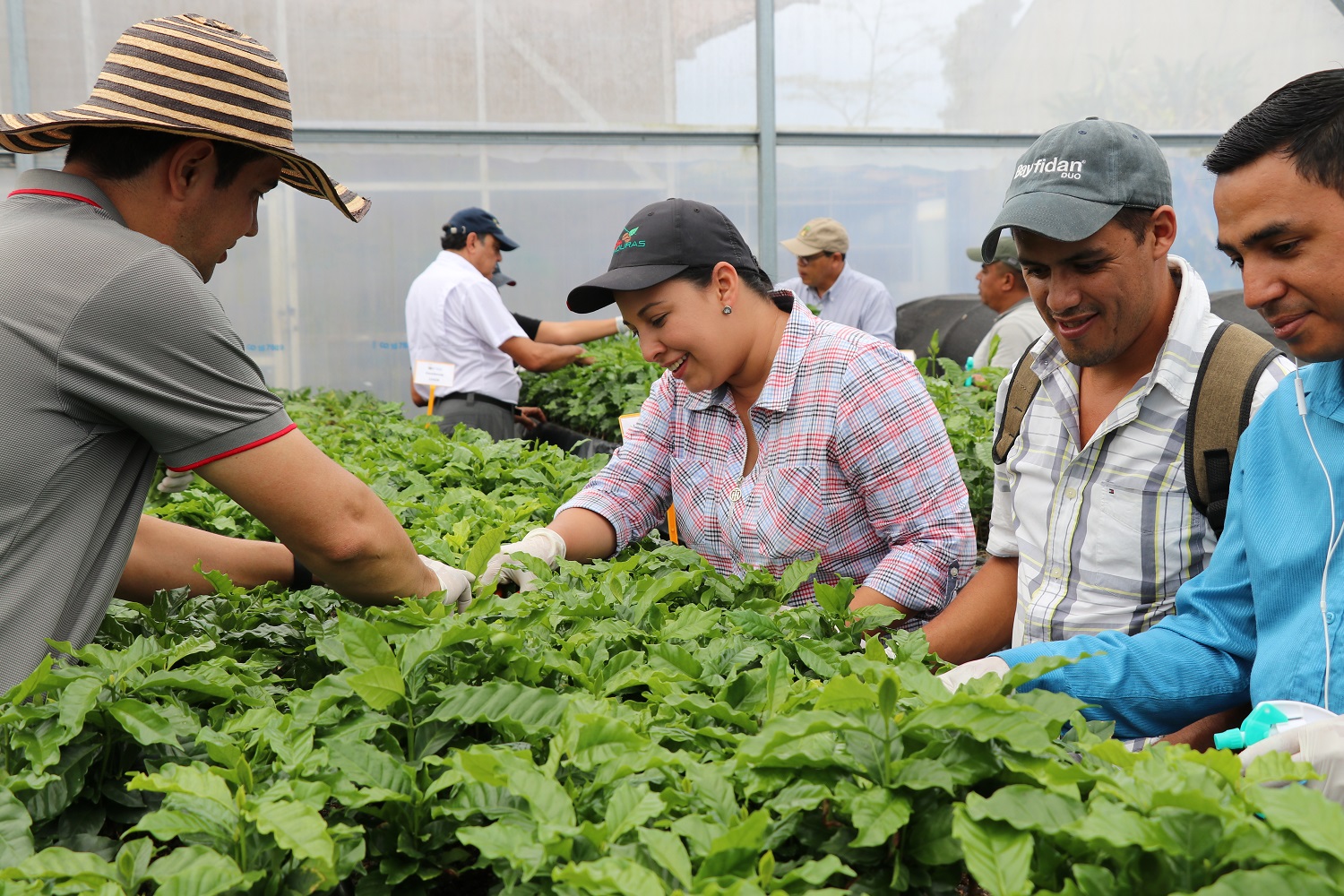A training session organized by CATIE, IICA and the European Union, will facilitate the development of a roadmap to devise propagation models for varieties with greater climate change resistance potential.

Turrialba, Costa Rica, 26 February 2020 (IICA). Technical officers and professionals in the Central American agriculture sector are undergoing a week of training at CATIE (Tropical Agricultural Research and Higher Education Center), focusing on vegetative propagation techniques for coffee, with a view to bolstering the restoration of coffee plantations in the region, with varieties that are more resistant to disease and extreme climate events.
The session is a joint initiative by CATIE, the Inter-American Institute for Cooperation on Agriculture (IICA), the European Union and the countries of PROMECAFE, and is part of the Central American Program for Integrated Coffee Rust Management (PROCAGICA).
Elías de Melo, a researcher in CATIE’s Agriculture, Livestock and Agroforestry Program (PRAGA), explained that the aim is to instruct participants in clonal propagation techniques for coffee, developed by CATIE’s Forestry Seed Bank, with an emphasis on the rooting of cuttings. This will enable participants to replicate the model in their own countries, for varieties that have potential and that are of interest to that country.
Melo remarked that, “The cutting-rooting technique facilitates increased production of hybrids and other promising material, producing better quality at a lower cost, and enabling more intensive production of coffee trees with a view to restoring coffee plantations”.
The more than 25 participants will be introduced to CATIE’s coffee genetic improvement program and its International Coffee Collection, which has developed F1 hybrids and other commercial varieties.
They will also benefit from the Center’s experience in coffee agroforestry systems with F1 hybrids and other materials, and will learn about the initial cloning process of hybrids through somatic embryogenesis. They will then be instructed in coffee clone propagation techniques, in particular the rooting of cuttings. Finally, they will visit commercial plantations that are using F1 hybrids, primarily those developed by the CATIE-CIRAD-PROMECAFE Program and coffee institutions.
On the final day of training, participants will design a roadmap to establish similar propagation models in each country for varieties in which they have an interest and that demonstrate potential.
Harold Gamboa, General Coordinator of PROCAGICA, explained that after the event, participants will be expected to replicate the newly acquired techniques in their own countries, in order to benefit the coffee production section, which is currently facing significant challenges.
Melo indicated that, “After the training, participants will have a clearer understanding of how to improve existing capacity in their countries and will be responsible for taking advantage of available resources from PROCAGICA, in order to establish greenhouses for coffee vegetative reproduction or to improve greenhouses that already exist”.
Eduardo Somarriba, leader of CATIE’s PRAGA program, asked that, during the training on vegetative propagation, participants remain open to recognizing the possibilities that arise when these technologies are introduced in the field, and then implemented and disseminated among producers.
More information:
Elías de Melo, Researcher – Agriculture, Livestock and Agroforestry Program, CATIE.
Harold Gamboa, Coordinator of PROCAGICA.











